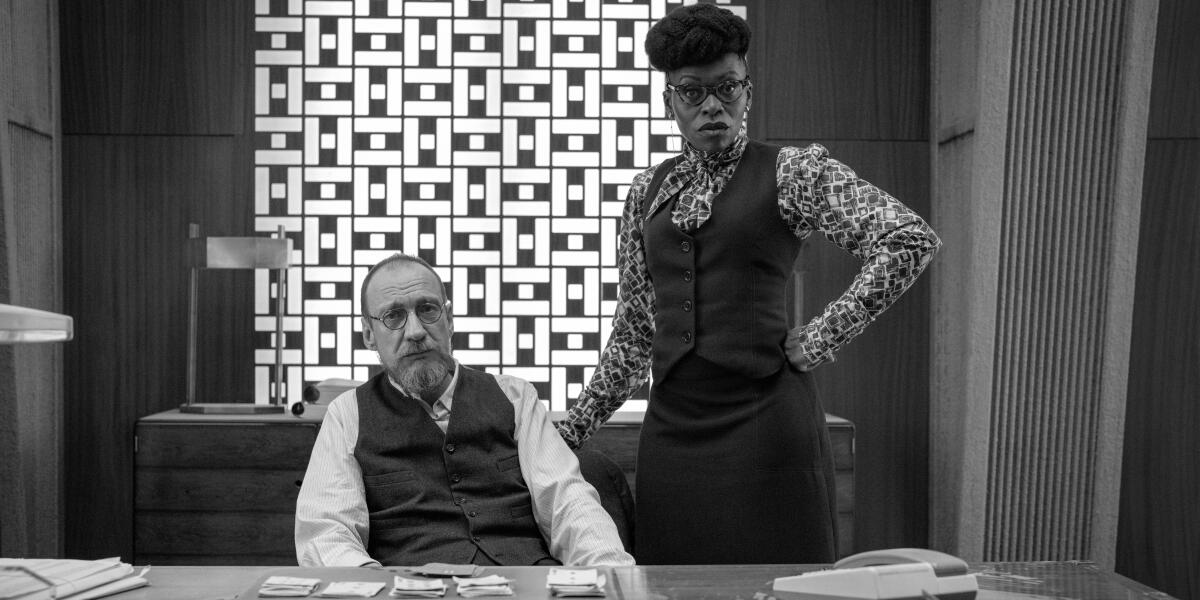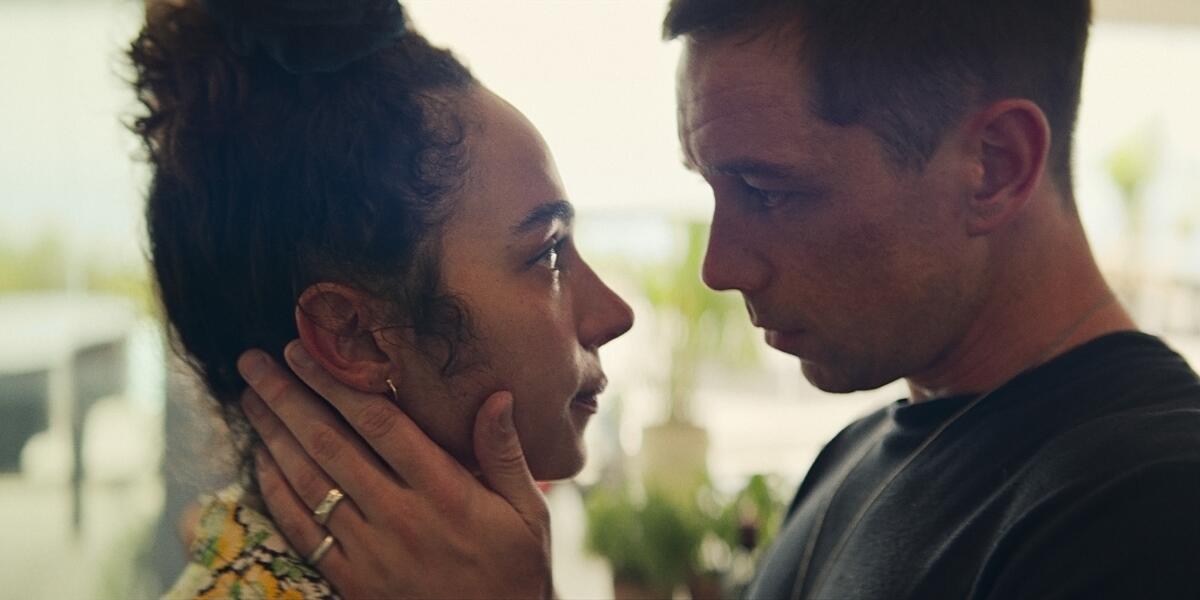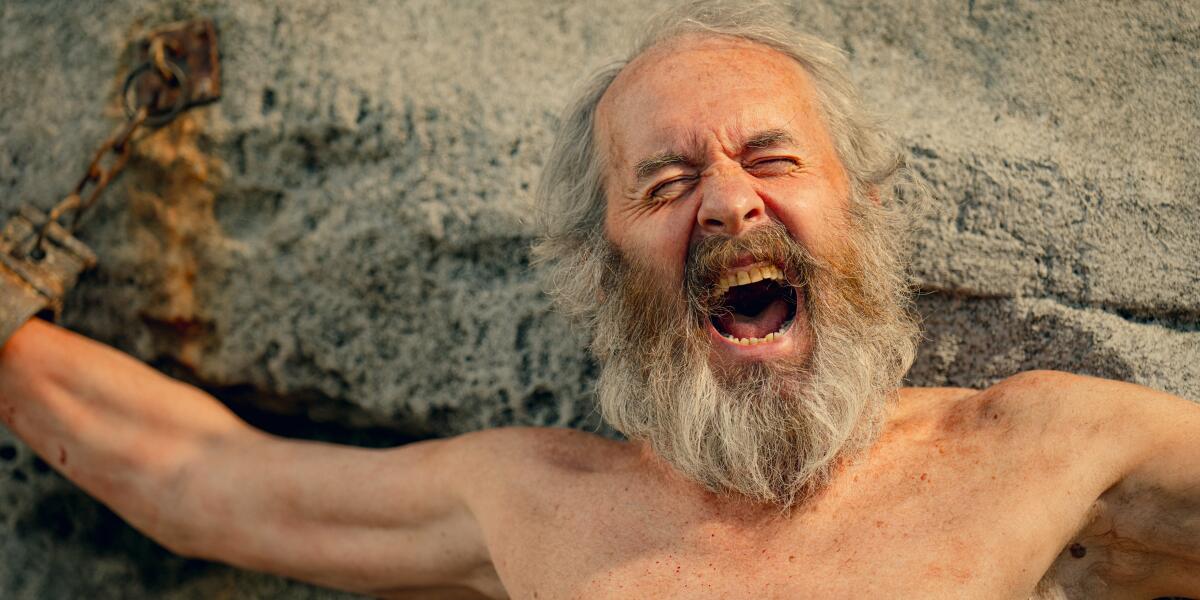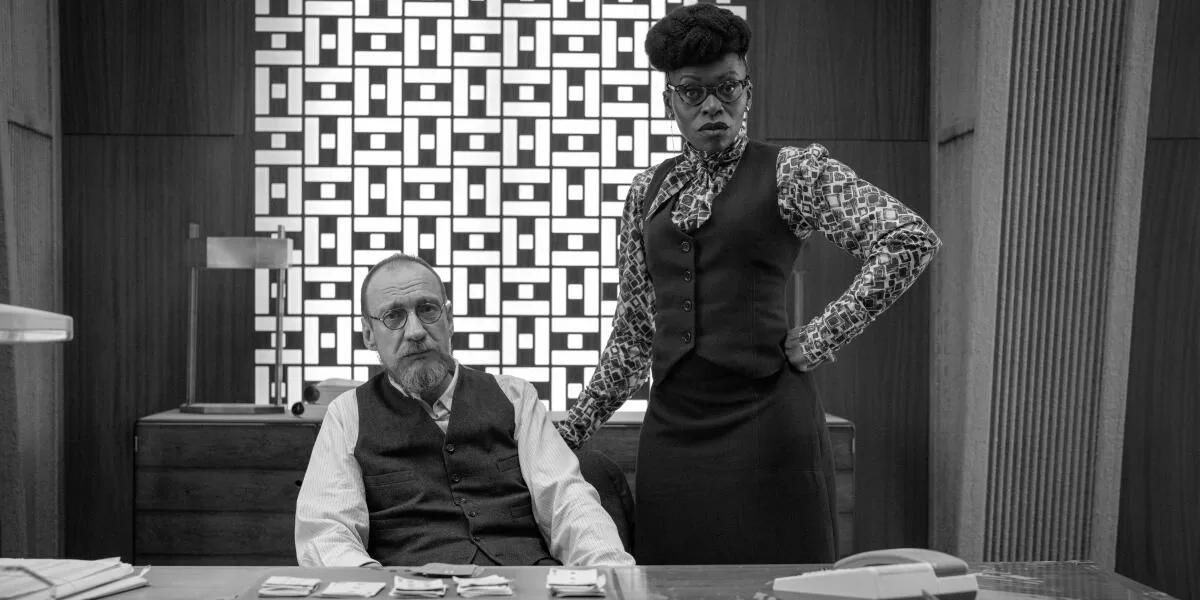I am sorry to disappoint anyone who, hearing of the new series “Kaos,” which Netflix styles as “KAOS,” is expecting a “Get Smart” spinoff. We are instead facing the third series currently in production steeped in Greek history and mythology, after Fox’s animated “Krapopolis” and Disney+’s excellent “Percy Jackson and the Olympians.” (And three, as we say in the news game, makes a trend.)
“Kaos,” which premieres Thursday, is set in a modern, metropolitan, alternative “Krete” (played by Spain), ruled from high above by Zeus (Jeff Goldblum), king of the gods, the capo di tutti capi — if a phrase from across the Ionian Sea may be allowed — and locally, with military overtones, by President Minos (Stanley Townsend), a “bozo” in Zeus’ opinion. Mt. Olympus is pictured here as a huge white and gold mansion, where Zeus lives with Hera (Janet McTeer), his queen, wife — and sister, a title helpfully adds.
Other characters pop in and out, not always of their own volition, including Zeus’ brother Poseidon (Cliff Curtis), who hangs out on a luxury super yacht, and son Dionysus (Nabhaan Rizwan), a bored club kid looking for something more. Depressed other brother Hades (David Thewlis) is stuck overseeing the underworld, a bureaucracy rendered in black and white where the architecture is all undistinguished brutalism.

In “Kaos,” the underworld is rendered in black and white. Hades, the god of the underworld, is played by David Thewlis. Rakie Ayola stars as Persephone.
(Justin Downing / Netflix )
As we begin, Zeus — who looks back wistfully to the days when the family would get together for barbecues — has become obsessed with a newly spotted “vertical wrinkle” on his forehead, which he links to a prophecy predicting the end to the family’s power. (It doesn’t help his mood that a monument unveiled on “Olympia Day” proves to have been defaced by blasphemous anti-gods graffiti and a mountain of excrement.)
“I’m supposed to be immortal — what is that? Aging? What’s next? A dip in bone density? Gum recession? Necessity for the daily stewed prune?” he wails to Prometheus (Stephen Dillane), whom Zeus occasionally magically transports to Olympus from the cliffside where he’s chained him, and where an eagle canonically pecks out his liver anew every day. Zeus, who imagines Prometheus is somehow still his friend — “my only friend” — looks to him for company and comfort. Prometheus, who is also our narrator, calls Zeus “a transcendent, unmitigated bastard — but don’t worry, there’s a plan to bring him down.”
Meanwhile, down on Earth, and beneath it, the story of Orpheus (Killian Scott) and wife Eurydice (Aurora Perrineau), who prefers to be called “Riddy,” gets a makeover. He’s now an idolized pop star whose songs are all about her; where Eurydice was only a beautiful love object, Riddy has agency and independence. The myth requires that she’ll die and he’ll come looking for her in the underworld, which I trust you do not consider a spoiler. (That she has fallen out of love and is planning to leave him is a new complication.) Orpheus is helped along the way by Dionysus, who likes humans and has decided that this is the project he needs to improve his own life.

Aurora Perrineau as Riddy and Killian Scott as Orpheus in “Kaos.”
(Netflix)
It’s a short conceptual step from the powerful, dysfunctional family that was the Greek gods to something like “Succession,” and their ruthlessness is also reminiscent of mob stories and sundry tales of fascist governments and rebel factions. (It couldn’t have hurt the pitch.)
Your mileage may vary depending on how much this sort of drama appeals to you, but while the rethinking of these characters is conceptually interesting, even intriguing, after a time, I did find their internal squabbling, adulterous sexcapades and thoughtless cruelty increasingly tedious. (I do realize that these very elements will constitute a recommendation to some viewers.)
Directed largely by Georgi Banks-Davies (“I Hate Suzie,” the cruelly canceled “Paper Girls”), the production is imaginative and brilliantly executed. There are some cute conceits — cereal brands with names like Spartan Crunch and Achilles’ Heels, and Zeus and Poseidon bobbleheads. The entrance to the underworld is through a garbage bin. All phones are landlines. (Zeus leaving messages on his unresponsive relatives’ answering machines makes for a funny montage.) There’s a fax machine in the afterlife. The Fates, with Eddie Izzard as Lachesis, hang out in a bar, where a chance to bring a loved one back from the dead is staged as a sort of pub quiz. Debi Mazar pops in as a good Medusa, with a scarf tied around her snake hair.
There’s a lot going on over the 10-episode series, which jumps from tone to tone, among and within its various threads — comedy, tragedy, satire, horror. They don’t always mesh well, and the darker the series gets, the duller it becomes.
“Kaos” is certainly clever, but it’s also a little cold. Dionysus, Riddy, Minos’ daughter Ari (Leila Farzad) and Caeneus (Misia Butler), whom Riddy meets in the underworld, are the characters most likely to elicit an emotional response, but this has as much to do with the appeal of the actors as the story they’re portraying.

Stephen Dillane as Prometheus, god of fire and Zeus’ best friend. He’s chained to side of a cliff, and an eagle pecks at his liver each day.
(Daniel Escale / Netflix )
As with any production in which Goldblum features, he’s one of the best reasons to watch. Indeed, had Hugh Grant, who was originally cast as Zeus, not had to drop out, this would have been a much different and, no offense to Grant, less lively series. The part seems to have been shaped, or reshaped, to Goldblum’s jumpy rhythms and a delivery that retains a note of the comic however serious the matter. If the character becomes tiresome, the player does not.
Charlie Covell (“The End of the F***ing World”), whose credit reads, “written, created and executive-produced by,” studied English at Oxford — and you can’t really study English without getting into the Greek myths that inform so many modern narratives, metaphors and words. If you know something about Zeus and Hera or Orpheus and Eurydice, not to say Cassandra (Billie Piper), Charon (Ramon Tikaram) or Daedalus (Mat Fraser), you’ll have a head start on the dramatis personae; you’ll get the sidelong references to Icarus without having to have that story retold to you. (And it won’t be.)
In any case, there’s enough explanation offered that you won’t need to be running to Wikipedia all the time. But you may anyway.
